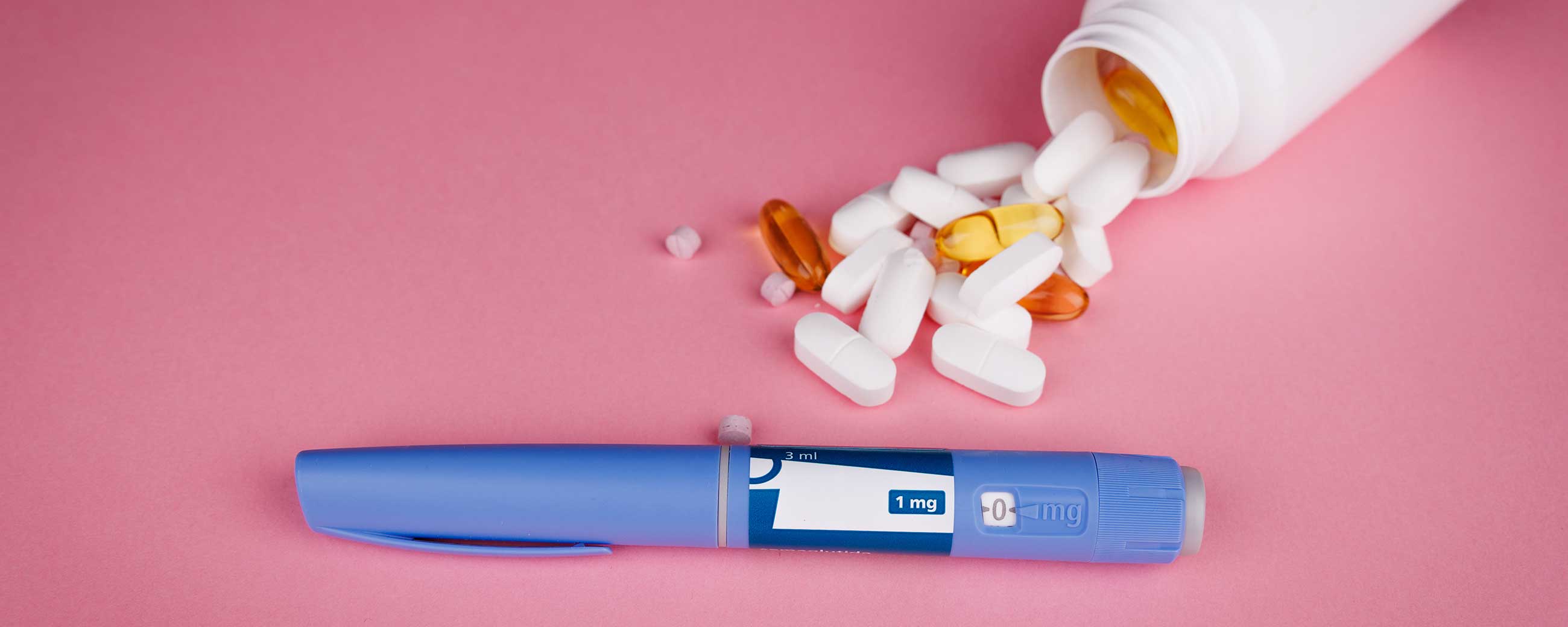
How Long Does it Take to Reverse Prediabetes?

Getting diagnosed with prediabetes can feel scary. After all, you’ve probably heard the grim stats – as many as 70% of people with prediabetes will progress to type 2 diabetes over their lifetimes¹. But is this inevitable? What exactly is prediabetes, and can it be reversed? And how quick is the reversal process?
What is prediabetes?
One of the primary ways that prediabetes is diagnosed is an HbA1c (a measure of average blood sugar over the past 3 months) between 5.7% and 6.4%.This occurs when blood glucose (sugar) levels are higher than normal but not high enough to be classified as type 2 diabetes. Type 2 diabetes is diagnosed when A1c is 6.5% or higher. Unfortunately, prediabetes is extremely common in the U.S. – the CDC estimates that 1 in 3 adults have prediabetes.
Can prediabetes be reversed?
Here’s some good news: Prediabetes can be reversed – that is, through certain lifestyle changes, you can bring your blood sugar back down to normal levels without using blood sugar lowering medications. It’s possible to not only prevent the progression of the disease, but also to get your blood sugar back to where it was before you ever got diagnosed with prediabetes.
One of the most powerful and well-studied ways of doing this is through making some changes to your diet. Low-carbohydrate nutritional approaches are particularly powerful when it comes to reversing prediabetes. Since carbohydrates break down into sugar in your body and subsequently increase your blood sugar, limiting the amount you eat can be very powerful. Other methods of naturally lowering blood sugar include:
- Getting good sleep
Getting enough sleep and high quality sleep can have a big impact on your blood sugar². Make sure you are practicing good sleep hygiene habits like trying to go to bed and wake up at the same time on a regular basis, putting away electronics and screens before bedtime, and getting at least 7 hours of sleep a night.
- Reducing stress
Stress can have a big impact on your blood sugar. Managing stress, and reducing it when possible, is key to your journey toward reversing prediabetes. Some coping strategies to manage stress in your life include making time for hobbies, meditating, practicing mindfulness and self care, and seeking help from a counselor or therapist.
- Staying physically active
Staying physically active may feel like it’d be difficult – but it doesn’t have to mean purposeful, strenuous exercise. Try to see if you can incorporate some movement in your daily routine by taking meetings or phone calls on a walk, or building in some time to stand up and move around the house during the day.
- Quitting smoking and cutting back on drinking
Smoking and drinking in excess can hinder your progress towards reversing prediabetes. Both smoking and drinking can cause physiologic (physical) stress on the body, and this can increase blood sugar levels. In addition, moderate to heavy alcohol use can harm the pancreas and the liver, and both of these are important for good metabolic health and sugar control. You want both of these organs to function at their best. Finally, you are less likely to make healthy food choices if you are under the influence of alcohol.
- Monitoring your progress
Monitoring your blood sugar levels, whether you are tracking through an app, a journal, or a continuous glucose monitor, can be a good way to understand what causes spikes. When you start to see how your body reacts to certain foods, stressors, and more, it gives you the ability to change what you are doing to better match what your body can handle.
- Asking for help
There’s a lot to take in when you get a prediabetes diagnosis. Don’t be afraid to ask questions and seek support. It can be difficult to make and maintain the lifestyle changes needed to reverse prediabetes, so look for accountability allies in your family and among your friends. And if you’re looking for more support, see if you are eligible for Virta to get access to the Virta app and resources, to the Virta online patient community, to a dedicated health coach, and to a Virta medical provider.
Virta’s prediabetes reversal program utilizes a low-carb approach, and patients are supported by their 1/1 health coach and care team. See if you are eligible for Virta here.
How long does it take to reverse prediabetes?
How long it takes to reverse prediabetes depends on the method you’re using and how your body responds. Studies suggest that when following a low-carb diet, it is possible for people with type 2 diabetes to see meaningful blood sugar improvements in as little as 2 weeks⁴.
Restricting carbohydrates in your diet is one of the most effective ways to quickly improve blood sugar³ and reverse prediabetes. In a Virta Health study, 56% of participants adhering to a low-carb diet with the support of an app to log their progress and dedicated health coaches were able to reverse their diabetes in 10 weeks⁵. When adhering to this program, only 3% of prediabetes patients had progressed to type 2 diabetes after 2 years, and on average they lost over 11% of their body weight⁶.
Reversing prediabetes: a success story
Jami was diagnosed with prediabetes in 2016. She had a family history of diabetes and saw her father suffer through the disease and it’s complications. She knew something had to change.

“When I was diagnosed with prediabetes, I was frustrated but not surprised. I was struggling; I didn’t want to become a diabetic. I had seen what it had done to my dad. He had to take insulin 3-4 times a day. His sugar levels were on a rollercoaster, causing kidney damage and heart problems. I do not want these issues nor do I want diabetes…After being on Virta for three months, my A1c went down to 5.4, and my triglycerides and cholesterol also went down.” -Jami, Former Virta Patient
In closing
It’s no fun to hear from your doctor that you have prediabetes; however, you can take control of your destiny to prevent progression to type 2 diabetes and even to return to normal sugar levels. And the good news is that these changes can happen quickly, particularly with dietary changes such as limiting carbohydrates.
This blog is intended for informational purposes only and is not meant to be a substitute for professional medical advice, diagnosis, or treatment. Always seek the advice of your physician or other qualified health provider with any questions you may have regarding a medical condition or any advice relating to your health. View full disclaimer
Are you living with type 2 diabetes, prediabetes, or unwanted weight?

- Tabák AG, Herder C, Rathmann W, Brunner EJ, et al. Prediabetes: a high-risk state for diabetes development. Lancet. 2012 Jun 16;379(9833):2279-90. doi: 10.1016/S0140-6736(12)60283-9. Epub 2012 Jun 9. PMID: 22683128; PMCID: PMC3891203.
- Knutson KL, Ryden AM, Mander BA, et al. Role of sleep duration and quality in the risk and severity of type 2 diabetes mellitus. Arch Intern Med. 2006 Sep 18;166(16):1768-74. doi: 10.1001/archinte.166.16.1768. PMID: 16983057.
- Evert AB, Dennison M, Gardner CD, et al. Nutrition Therapy for Adults With Diabetes or Prediabetes: A Consensus Report. Diabetes Care 1 May 2019; 42 (5): 731–754. https://doi.org/10.2337/dci19-0014
- Boden, Sargard K, Homko C, et al. “Effect of a low-carbohydrate diet on appetite, blood glucose levels, and insulin resistance in obese patients with type 2 diabetes.” Annals of internal medicine. 2005; vol. 142(,6) (2005): 403-11. doi:10.7326/0003-4819-142-6-200503150-00006.
- McKenzie AL, Hallberg SJ, Creighton BC, et al. A Novel Intervention Including Individualized Nutritional Recommendations Reduces Hemoglobin A1c Level, Medication Use, and Weight in Type 2 Diabetes. JMIR Diabetes. 2017; 2(1):e5.
- McKenzie AL, Athinarayanan SJ, McCue JJ, et al. Type 2 Diabetes Prevention Focused on Normalization of Glycemia: A Two-Year Pilot Study. Nutrients. 2021; 13(3):749. https://doi.org/10.3390/nu13030749








